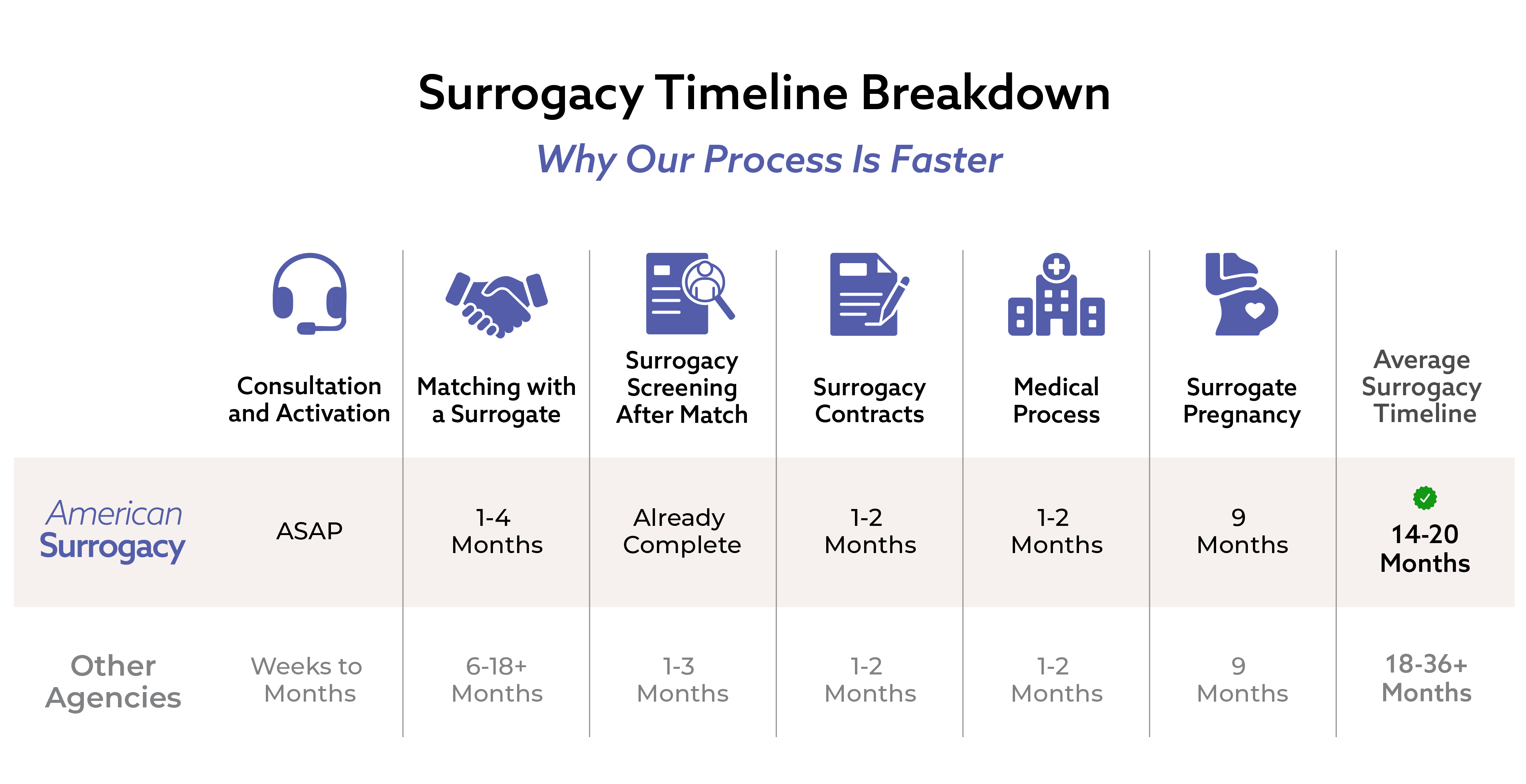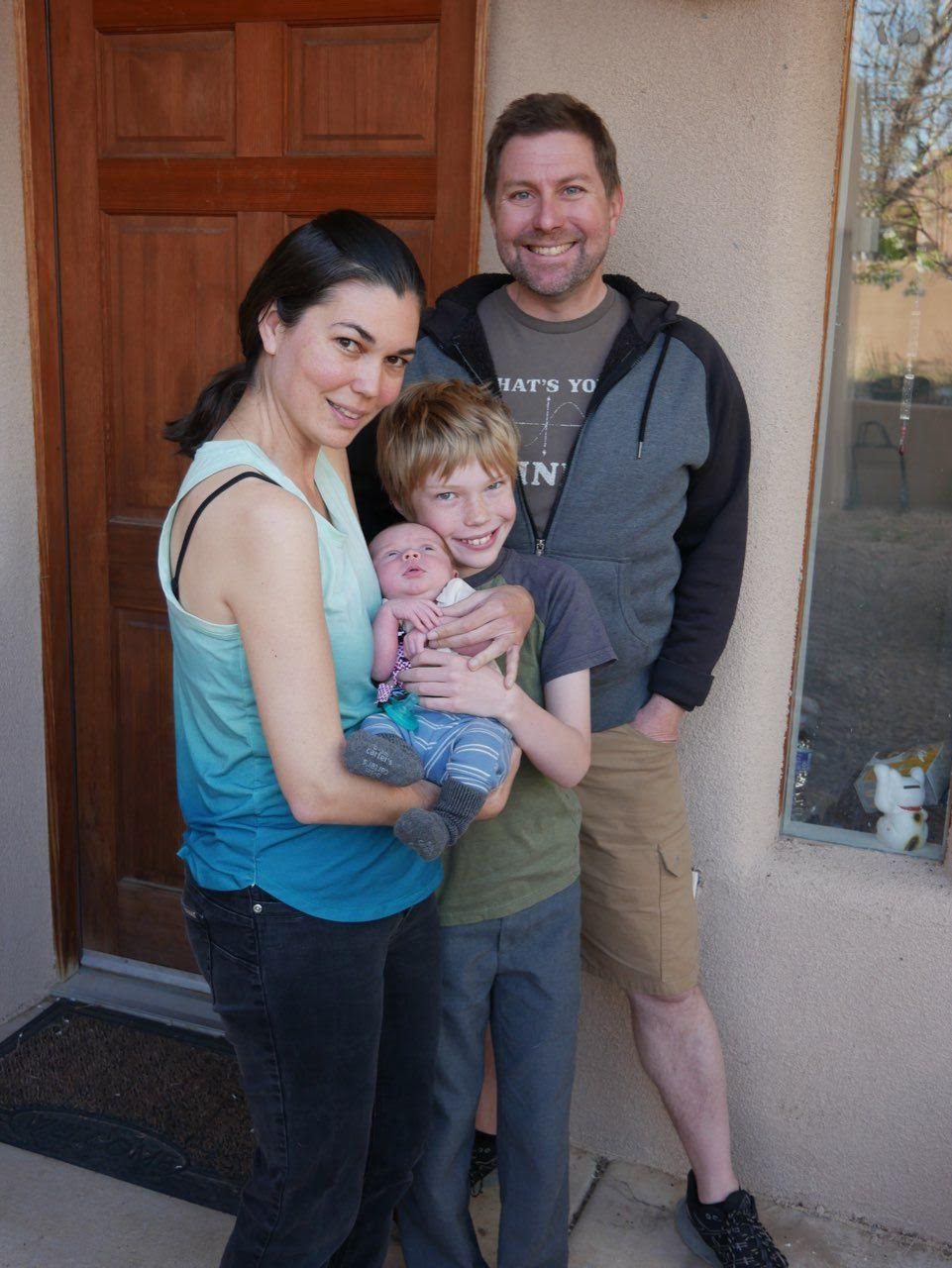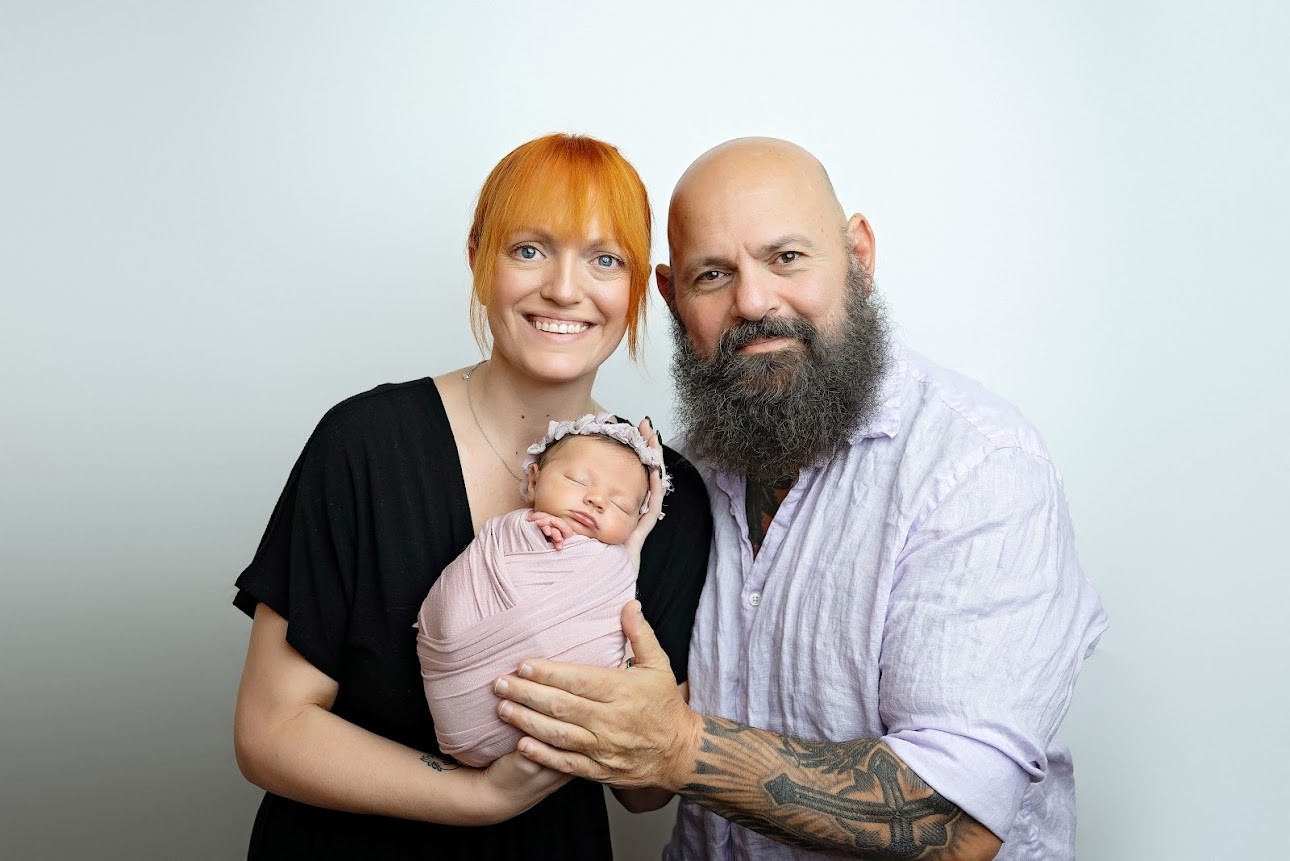You can become a parent when you have Hashimoto's thyroiditis, though your journey might unfold differently than you first imagined. Living with this autoimmune condition can bring unexpected fertility issues and pregnancy considerations that many women don't anticipate.
Surrogacy offers a safe, proven way to bypass these medical obstacles and help you move forward with your family-building goals.
If you're reading this, you've probably felt the frustration of trying to conceive with Hashimoto's. Maybe your doctors keep saying your levels look "fine," yet pregnancy remains elusive. Perhaps you've experienced pregnancy loss.
Thousands of women with Hashimoto's have faced this same experience—and found their path to parenthood.
I Have Hashimoto's and Can't Get Pregnant - What Are My Options?
Nearly 14 million Americans live with Hashimoto's thyroiditis, and women develop this autoimmune condition seven times more often than men. Months of trying to conceive may have left you frustrated and confused. Your thyroid might be creating invisible roadblocks that even well-managed TSH levels can't address.
How Hashimoto's Autoimmune Activity Affects Your Fertility
Your immune system gets its signals crossed and begins targeting the thyroid, causing inflammation that reaches beyond simple hormone changes.
Those same protective antibodies that should be helping? They're also getting in the way of ovulation, making implantation more challenging, and creating an environment where early pregnancies have a harder time taking hold.
Many women find themselves in a cycle where their endocrinologist declares lab work "normal" and their gynecologist can't pinpoint obvious fertility issues, yet cycle after cycle passes without the positive pregnancy test you're hoping for. Some women experience what feels like very late periods, not realizing they've suffered very early pregnancy losses. Traditional treatments like IVF help some women with Hashimoto's, but results can be disappointing due to underlying immune activity.
Surrogacy emerges as a medically sound path forward. Instead of putting your body through more stress and uncertainty, surrogacy lets you focus on becoming a parent through a safer route.
How Does Hashimoto's Affect Fertility in Women?
Hashimoto's creates an intricate web of reproductive difficulties that reach beyond thyroid hormone levels. Autoimmune activity affects multiple systems involved in reproduction, making conception and carrying a pregnancy more challenging than it should be.
Thyroid hormones directly control ovulation timing and quality. Even when TSH appears normal, subclinical issues can cause:
- Irregular menstrual cycles
- Missed ovulation (anovulation)
- Luteal phase defects that prevent implantation
- Unpredictable cycle lengths
Many women notice these changes early—subtle signs that fertility might be affected.
Anti-thyroid antibodies don't always stay in their lane—they can target reproductive tissues too, creating chronic inflammation that reduces egg quality, affects uterine lining development, and triggers immune responses that don't support healthy embryos. Additionally, Hashimoto's rarely travels alone.
Many women also have celiac disease, antiphospholipid syndrome, or other autoimmune conditions that compound reproductive problems.
When IVF Keeps Failing: Is Your Thyroid the Real Culprit?
If multiple IVF cycles with good-quality embryos keep ending in disappointment, Hashimoto's might be working against you imperceptibly. Research shows that women with thyroid autoimmunity have lower IVF success rates, even when their hormone levels are well-managed.
Problems often occur during that critical implantation window, when elevated thyroid autoantibodies create inflammatory responses right as your embryo is trying to attach to the uterine lining—sometimes causing very early pregnancy loss that appears as a failed IVF cycle rather than a miscarriage.
Some fertility clinics try prescribing immune-suppressing drugs or steroids during IVF cycles, but these medications carry risks and don't address the root autoimmune dysfunction.
Too many women find themselves in cycles of failed treatments, accumulating bills, and emotional exhaustion. Surrogacy offers a different approach—one that removes your overactive immune system from the pregnancy equation entirely.
When Surrogacy Becomes the Recommended Path for Hashimoto's Patients
Reproductive endocrinologists typically suggest surrogacy when certain patterns emerge in your medical story. Decisions often come after you've tried other approaches, but specific warning signs indicate that surrogacy may be your safest and most effective option.
When Doctors Recommend Surrogacy for Hashimoto's Fertility Issues
Your doctor might recommend surrogacy if you've experienced three or more pregnancy losses, repeated IVF disappointments despite high-quality embryos, persistently elevated antibody levels that don't respond to treatment, or when carrying a pregnancy poses serious health risks due to your autoimmune condition.
These indicators often appear together—many women discover that immune-suppressing medications haven't improved their IVF outcomes, or that thyroid autoantibodies remain stubbornly elevated despite aggressive treatment.
The recommendation becomes even stronger when Hashimoto's creates pregnancy complications beyond fertility issues, including higher rates of pre-eclampsia, placental complications, intrauterine growth restriction, and increased risk of preterm birth.
When multiple fertility interventions fail to address the underlying autoimmune dysfunction and pregnancy risks mount, surrogacy becomes a logical next step.
How Surrogacy Solves These Challenges
Surrogacy provides a clear advantage here. Your surrogate's healthy immune system and properly functioning thyroid create an ideal environment for pregnancy, substantially improving your chances of bringing home a healthy baby.
Instead of subjecting yourself to repeated medical interventions with uncertain outcomes, surrogacy offers a more predictable path to parenthood that works with your medical reality rather than against it.
Gestational Surrogacy: Your Genetic Baby, Healthier Pregnancy
One crucial thing to understand: through gestational surrogacy, any resulting child will be genetically yours. We create embryos using your eggs and your partner's sperm (or donor gametes if needed), then transfer these embryos to your surrogate's healthy uterus.
Gestational Surrogacy: Using Your Own Eggs and Embryos
Whether you already have frozen embryos from previous IVF cycles or need to create new ones through ovarian stimulation and egg retrieval, the process ensures any resulting child will be 100% genetically yours and your partner's.
Your carefully screened surrogate provides the stable uterine environment your body cannot, offering her healthy thyroid function and balanced immune system to create favorable conditions for embryo development.
The Surrogacy Process for Hashimoto's Patients
We've designed our surrogacy process to feel as smooth and supportive as possible, especially for intended parents who've navigated challenging medical situations. You've likely experienced ups and downs with fertility treatments, so our focus centers on providing clear guidance and reliable support at every step.
Step 1: Your Personal Consultation
Your journey begins with a thorough consultation where we dive into your medical history and discuss how your Hashimoto's diagnosis specifically impacts your family-building goals.
We coordinate directly with your reproductive endocrinologist from day one, ensuring everyone on your medical team is aligned and working together. No more conflicting advice or communication gaps between providers.
Step 2: Finding Your Perfect Match
Once we understand your needs, we begin the matching process. We'll pair you with a surrogate who understands medical intricacies and commits to following any specialized care protocols your Hashimoto's requires.
Every surrogate in our program has undergone extensive medical and psychological screening.
Step 3: Legal Protection and Medical Planning
With your match confirmed, we move into the legal phase, establishing clear agreements that protect everyone involved while addressing the specific medical considerations your autoimmune condition requires.
Meanwhile, your reproductive endocrinologist prepares for embryo transfer using the same clinic and protocols you're already familiar with.
Step 4: Transfer and Pregnancy Support
After a successful embryo transfer, our support doesn't end—it intensifies. Our case management team becomes your communication hub, coordinating care between you, your surrogate, and your entire medical team.

We facilitate every conversation, answer every question, and keep you informed about the pregnancy progress throughout the entire process.
Matching Hashimoto's Patients with Experienced Surrogates
At American Surrogacy, we recognize that intended parents with Hashimoto's need more than just any available surrogate. You deserve someone who truly understands the medical intricacies and emotional weight of what you're going through.
How We Screen Surrogates for Autoimmune Condition Cases
Our pre-screening process ensures our surrogates are authentically prepared for the unique aspects of carrying for intended parents with specialized medical needs. We specifically seek women who demonstrate:
- Flexibility with medical protocols
- Excellent communication skills
- Sincere empathy for the path that brings couples to surrogacy
Many of our surrogates have personal experience with pregnancy complications, reproductive difficulties, or supporting loved ones through similar paths. This lived experience creates deeper understanding and stronger partnerships between intended parents and surrogates.
The matching timeline might surprise you in the best way. While some agencies have wait times stretching 12-18 months, our established network and efficient screening process help you become a parent faster. We often match you with a qualified surrogate within 1 - 4 months months of completing your application.

2 Months

1 Month

3 Weeks
How Much Does Surrogacy Really Cost?
Surrogacy investments typically range from $100,000 - $200,000+, with your specific costs depending on factors like location, medical intricacy, and chosen services. The total investment includes:
- Surrogate base compensation
- Monthly allowances during pregnancy
- Medical expenses not covered by insurance
- Legal fees for complete contracts
- Our agency fee covering case management and support services
Cost-Effectiveness for Hashimoto's Patients
For intended parents with Hashimoto's, surrogacy often proves more cost-effective than continuing IVF attempts indefinitely. Factor in the emotional and physical toll of repeated failed cycles, increasing medical bills from multiple treatments, and time lost pursuing unsuccessful options.
Surrogacy Financing Options for Hashimoto's Patients
We understand surrogacy represents a substantial financial commitment, especially for families who've already invested in fertility treatments. We've partnered with Sunfish to offer specialized fertility financing with competitive rates and flexible terms designed for families pursuing surrogacy.
Additional financing options include:
- Fertility grants: Many organizations support families dealing with medical infertility
- Personal loans: Favorable terms for medical expenses
- 401(k) options: Loans or hardship withdrawals
- HSA/FSA funds: For qualified medical expenses
- Employer benefits: Increasingly include surrogacy coverage
- Medical expense crowdfunding: Community-supported funding
Our team connects you with financial counselors who specialize in fertility financing and understand the unique challenges facing intended parents with specialized medical needs.
You're Not Alone: Finding Support Through Hashimoto's and Infertility
Managing both Hashimoto's and infertility can feel isolating, but you're part of a large, supportive community of women navigating similar challenges.
Online Communities and Forums:
- r/Hashimotos: Daily support and shared experiences from the Hashimoto's community
- r/infertility: Complete support for reproductive difficulties with active daily threads
- r/IVF: Specific support for those navigating IVF with autoimmune conditions
- r/surrogacy: Support and advice from intended parents and surrogates
- r/autoimmune: Broader community discussing multiple autoimmune conditions
National Support Organizations:
- RESOLVE: The National Infertility Association with local chapters nationwide
- American Thyroid Association: Patient resources and support network
- Hashimoto's Awareness: Educational resources and patient advocacy
Local and Professional Support:
- RESOLVE local chapters: Face-to-face support groups in most major cities
- Fertility clinic support groups: Many clinics offer Hashimoto's-specific counseling
- Endocrinology patient groups: Hospital-based support for autoimmune thyroid conditions
Many women find authentic comfort connecting with others who've successfully built families through surrogacy after struggling with autoimmune-related infertility.
Ready to Explore Surrogacy for Your Hashimoto's Fertility Journey?
Living with Hashimoto's doesn't mean accepting years of unsuccessful treatments, pregnancy complications, or constant uncertainty about miscarriage. Surrogacy works with your diagnosis instead of against it, and thousands of families have already walked this path successfully.
At American Surrogacy, we specialize in supporting intended parents with intricate medical histories. Our streamlined process, carefully screened surrogates, and extensive support system help you become a parent faster while prioritizing your safety and peace of mind.
The family you've been working toward is within reach. That moment when you're holding your healthy baby in your arms is closer than you might expect. Contact our specialists today for a confidential consultation about your options.
Ready to explore how surrogacy can help you overcome the reproductive difficulties associated with Hashimoto's? Contact our specialists today for a confidential consultation about your options.
Disclaimer: The information provided in this article is for educational and informational purposes only and is not intended as medical advice. American Surrogacy does not provide medical services and does not make clinical determinations regarding eligibility for fertility treatments or surrogacy. All medical evaluations and decisions should be made in partnership with licensed medical professionals.